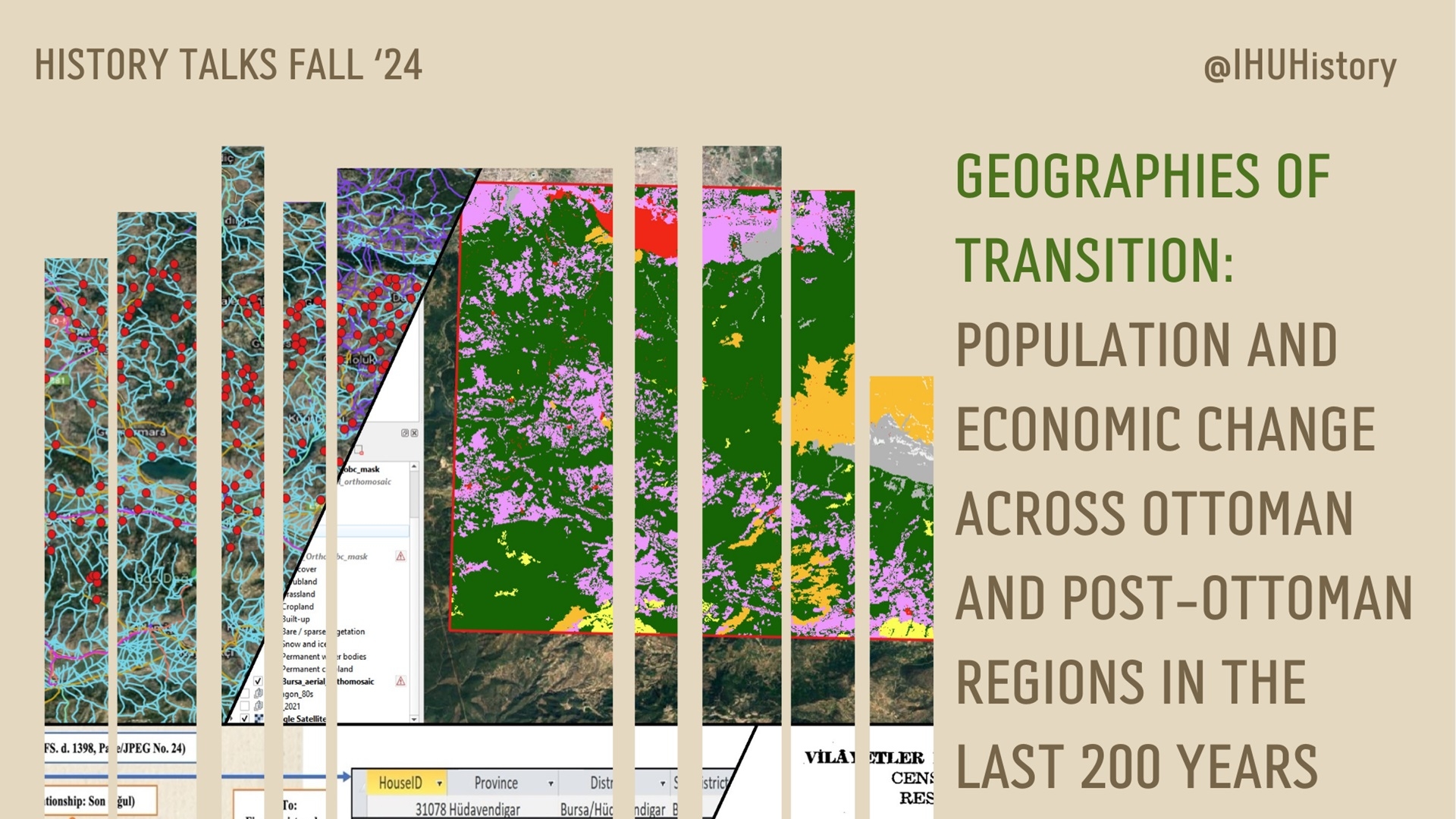


The Department of History organized a talk with the participation of Dr. Efe Ünal on “Geographies of Transition: Population and Economic Change in Ottoman and Post-Ottoman Regions in the Last 200 Years”. The event will be held on Thursday, December 26th at 15.00 in YBF B-36 hall.
Geographies of Transition: Population and Economic Change
Across Ottoman and Post-Ottoman Regions in the Last 200 Years
Survival through much of human history involved a constant battle against poverty, grueling labor, and the ever-present threat of premature death. By the nineteenth century, the Industrial Revolution began to overturn these harsh conditions, initiating unprecedented technological and economic development. This shift saw the rapid acceleration of Western economies while much of the rest of the world remained stagnant, a phenomenon later known as the “Great Divergence.” The origins and full scope of this parting of ways continue to be a topic of intense debate.
Traditional analyses have often been constrained by either national-level data, which overlook regional dynamics, or micro-studies that lack broader comparability. Digital humanities now offer powerful tools to bridge these gaps. Advances in GIS and data digitization allow researchers to integrate diverse datasets, uncovering patterns that link demographics, infrastructure, and environmental factors to long-term economic and population changes.
Regions of Southeast Europe, Anatolia, and the Middle East, often overlooked in global comparisons, are vital to this conversation. While past studies have relied on late nineteenth- and twentieth-century national statistics, recently digitized mid-nineteenth-century Ottoman records —such as population registers and tax surveys— provide granular insights into regional economies and demographics.
This talk showcases how integrating Ottoman microdata with modern data and analytical methods reveals long-term transformations in population density, urbanization, land use, and land cover —key aspects of economic and demographic change all over the globe— from the mid-nineteenth century to today. By situating these shifts within the broader framework of the Great Divergence, my research offers a longitudinal and comparative evaluation of the critical role of Ottoman and post-Ottoman regions in global economic history.
Efe Erünal completed his PhD in History at Koç University in 2023, focusing on the economic, demographic, and social history of the Ottoman Empire and its successor states from the nineteenth century to this day. His work combines traditional historical research with digital tools, an approach that earned him the first-ever Ottoman and Turkish Studies Association (OTSA) Award for Digital Ottoman and Turkish Studies in 2023. He has published in Middle Eastern Studies, The Journal of Balkan and Near Eastern Studies, and Nature’s Scientific Data. He is currently a visiting faculty member at Kadir Has University in Istanbul and a research fellow at the University of Vienna.